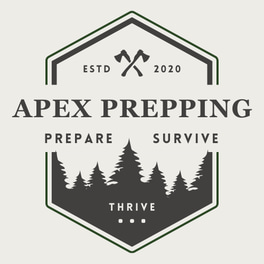Skills and knowledge
Know your abilites


Creating a comprehensive inventory of your skills and knowledge is a crucial step in emergency preparedness and survival scenarios. In times of crisis, your abilities can be just as valuable, if not more so, than physical supplies. Here's more information on how to create and utilize a skill inventory:
Identify Your Skills and Knowledge: Start by making a list of all the skills and knowledge areas you possess. These can be divided into various categories such as:
Survival Skills: These include outdoor survival skills like shelter-building, fire-starting, navigation, and foraging for food and water.
First Aid and Medical Skills: Knowledge of basic first aid, CPR, and even more advanced medical skills can be invaluable in emergencies.
Technical Skills: Consider any technical expertise you have, such as electrical repairs, plumbing, or vehicle maintenance.
Communication Skills: Being able to communicate effectively, whether through radio operation, sign language, or foreign language proficiency, can be vital.
Leadership and Organizational Skills: If you have experience in leadership, crisis management, or project coordination, these skills can help you take charge in a crisis.
Assess Skill Proficiency: After listing your skills, assess your proficiency level in each one. This could be on a scale from beginner to expert. Be honest about your capabilities.
Prioritize Skills: Some skills might be more critical in survival situations. Prioritize these skills and focus on improving them. For instance, knowing how to purify water might be more crucial than knowing how to bake bread.
Gather Resources: Based on your skill inventory, gather the necessary resources and tools that might be needed to apply your skills effectively. This could include first aid kits, tools, maps, or communication devices.
Learn and Practice: Continuously improve your skills by learning from reliable sources, taking courses, or practicing regularly. Keep yourself up-to-date with the latest information and techniques.
Share Knowledge: If you're part of a community or a survival group, sharing your skills and knowledge can be mutually beneficial. It strengthens your group's overall resilience.
Plan for Contingencies: Develop contingency plans that incorporate your skills. Consider various scenarios, from natural disasters to societal breakdowns, and how your skills can be applied in each.
Documentation: Keep records of important information related to your skills. This can include manuals, reference materials, and notes on specific techniques.
Regularly Review and Update: Your skill inventory isn't static. As you learn new skills or improve existing ones, update your inventory accordingly. Additionally, periodically review and refresh your knowledge to ensure it stays sharp.
Mental Preparedness: Alongside physical skills, mental resilience and adaptability are equally important. Work on your mental preparedness through mindfulness, stress management, and crisis decision-making exercises.
In summary, a comprehensive skill inventory is a vital aspect of emergency preparedness and survival planning. It ensures that you're not only equipped with physical supplies but also the knowledge and abilities to handle a wide range of challenging situations. Remember that preparation and practice are key to maximizing the value of your skills in a survival scenario.
